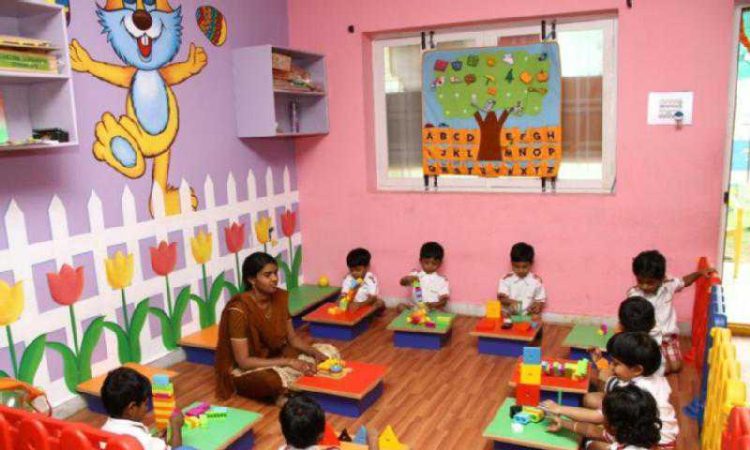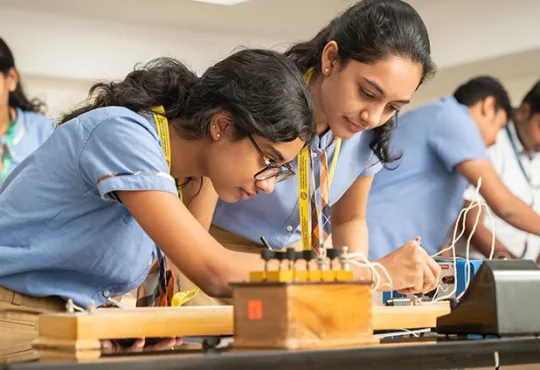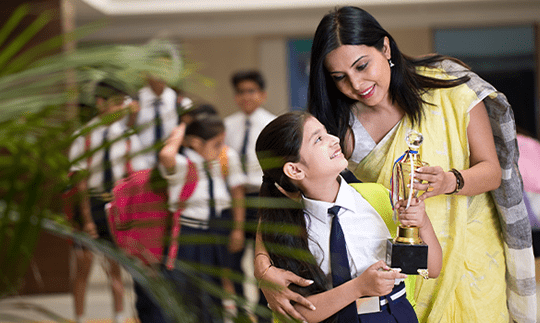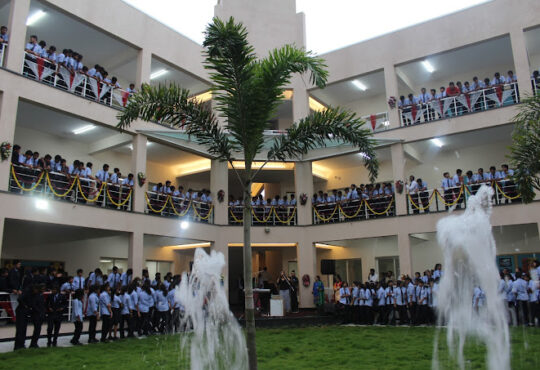
“Our care of the child should be governed, not by the desire to make him learn things, but by the endeavor always to keep burning within him that light which is called intelligence.”
Dr. Maria Montessori
Montessori education is a philosophy that respects a child’s natural desire to learn. Grounded in the work of Dr. Maria Montessori, it provides children with the environment, tools, and guidance they need to grow into independent, confident learners.
Understanding Montessori Education
Montessori education is built on the belief that children learn best when allowed to explore at their own pace. The Montessori method prioritises self-directed activity, hands-on learning, and collaborative play in a thoughtfully prepared environment. Unlike traditional education, which often revolves around standardised instruction, Montessori learning encourages autonomy and responsibility from an early age.
In a Montessori classroom, children can choose tasks from a curated set of learning materials. These tasks promote sensory development, motor coordination, language acquisition, math readiness, and cultural awareness. Learning is not about rushing through subjects but mastering concepts through experience.
What Is a Prepared Environment?
A “prepared environment” is a carefully organised space that supports independent learning and exploration. It includes:
- Age-appropriate materials placed at child-height
- Defined learning areas for math, language, practical life, and sensory activities
- Freedom of movement within a structured setting
- Minimal distractions, with a calm, purposeful atmosphere
This kind of environment builds trust in children’s ability to direct their own learning. The teacher plays the role of a guide, not a lecturer, observing the child’s needs and offering support only when necessary.
Parents researching the Best Pre Schools in Pune will often find that the Montessori approach stands out for its structured independence and evidence-based outcomes.
The Importance of Montessori Education
The importance of Montessori education lies in its proven ability to build lifelong learning habits. According to developmental psychology, children in their early years absorb information unconsciously from their surroundings. Montessori’s prepared environments harness this “absorbent mind” phase by offering structured freedom—children feel in control, yet they work in an environment that fosters discipline and focus.
Here’s how Montessori helps:
- Cognitive growth: Concepts are learned through exploration, aiding deeper understanding.
- Social skills: Multi-age classrooms encourage peer learning, empathy, and leadership.
- Confidence: Choice-based work builds a sense of ownership and self-esteem.
- Intrinsic motivation: Children learn because they’re interested, not for rewards or fear of punishment.
When consideringNursery Admissions, parents should evaluate how a school’s environment promotes these foundational skills, not just academic readiness.
Montessori Learning Theories in Action
The Montessori approach draws heavily on constructivist learning theories by Piaget and Vygotsky. These theories suggest children build knowledge through active engagement rather than passive reception.
- Concrete to abstract: Children first interact with tangible materials (e.g., beads for counting) before grasping abstract concepts.
- Zone of Proximal Development: Teachers introduce challenges slightly above the child’s current skill level, fostering growth without frustration.
- Freedom within limits: Encouraging choice while maintaining boundaries helps children develop discipline organically.
Such methods make Montessori learning ideal for early childhood education, where brain development is most sensitive to stimuli, structure, and interaction.
Montessori in Pune: A Case for GIIS
GIIS Pune integrates Montessori education in its Global Montessori Plus (GMP) Programme, blends classic Montessori principles with modern pedagogy. Its environments are designed to empower children through discovery, inquiry, and expression.
Parents exploring the best pre schools in Pune will find that GIIS bridges the gap between traditional values and innovative practices. The emphasis is on nurturing the whole child—emotionally, socially, and intellectually.
Final Thoughts & Actionable Tips
The importance of Montessori lies in its deep respect for a child’s natural learning rhythm. To ensure your child thrives:
- Observe how a school prepares its environment—does it allow for choice, movement, and order?
- Ask about the training of teachers in the Montessori method
- Look for multi-age classrooms and hands-on materials during Nursery Admissions
Choosing Montessori is choosing a foundation built on curiosity, confidence, and compassion.




